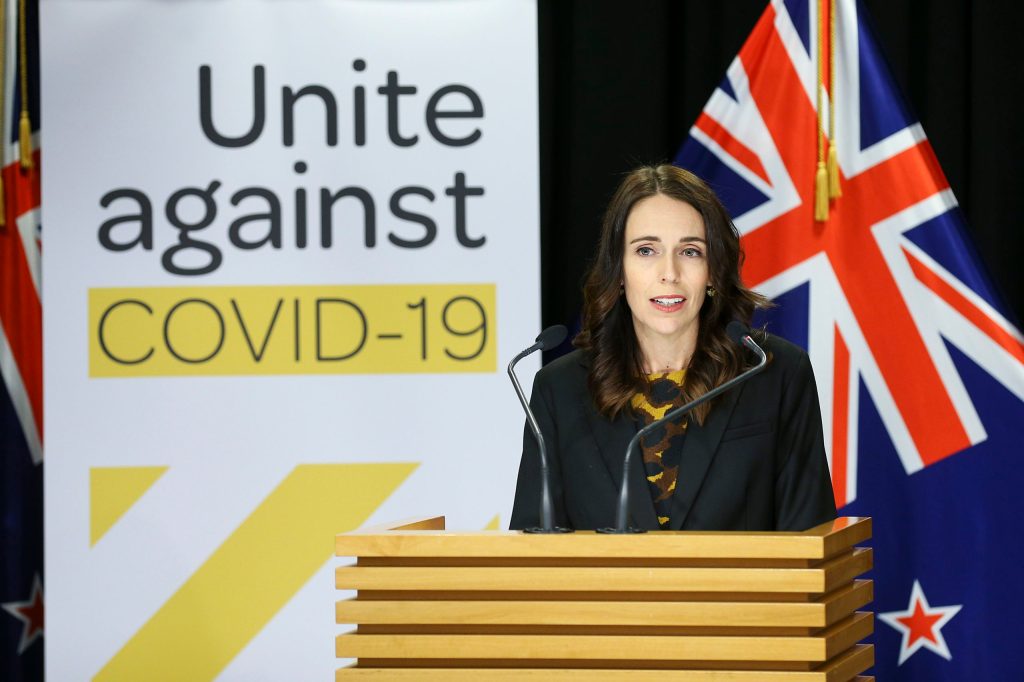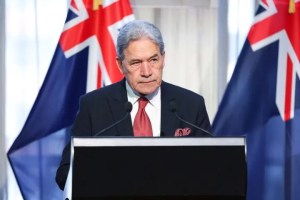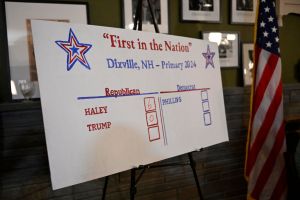A milestone was reached today when New Zealand became the first country to declare that all community transmission of coronavirus has effectively ceased. We have previously seen China (whose figures are not universally trusted), South Korea and Vietnam wrestle their figures for new cases of the disease down to very low levels, but New Zealand’s prime minister Jacinda Ardern has been the first national leader brave enough to use the word ‘eliminated’ — although she did prefix that with the word ‘currently’.
New Zealand has had 1,469 cases of the disease and 19 deaths. At four deaths per million, this works out at a small fraction of Britain’s 305 deaths per million and the US’s 166 deaths per million. So what has been New Zealand’s secret? Like Britain and America, New Zealand has been in lockdown for the past five weeks. People have been ordered to stay at home. Bars, restaurants and non-essential shops have been closed. Mass gatherings were banned. Beaches and playgrounds have been taped off. These measures were all undertaken when New Zealand had proportionally fewer cases than did Britain.
But New Zealand did undertake one further measure which has not been attempted in Britain: it closed its borders. New Zealand citizens have been allowed to return home; so too have Australian citizens who are normally resident in New Zealand. Other than that, entry to the country is restricted to critical healthcare workers and a small number who have been allowed to travel for humanitarian reasons. The ban extends to wealthy individuals turning up un superyachts — a group who have increasingly turned a fond eye to New Zealand in recent years as they wonder whether it might be the best bet for a safe refuge in the event of nuclear war or some other cataclysm.
It is easier, of course, to close your border when you sit alone, 500 miles from any other country’s territory (and even then it is only Norfolk Island, under Australian control). It also helps when you are self-sufficient in food — according to the Food and Agricultural Organization (FAO), New Zealand produces 85 percent more food than it consumes, putting it in the top six most self-sufficient countries on Earth. It ought to help having a low population density (New Zealand has 48 people per square mile compared with Britain’s 710 and the US’s 93) — although it is density of urban areas, where most people live, which perhaps counts for more in this regard. Another factor is that coronavirus struck New Zealand at the end of summer, compared with the end of winter in Europe. As I wrote here in March, there are some indications that coronavirus spread is very sensitive to temperature, with a team at the University of Maryland plotting that outbreaks tend to occur in places where the mean temperature was in the range of 41 to 52°.
***
Get three months’ free access to The Spectator USA website —
then just $3.99/month. Subscribe here
***
What has happened since has tended to confirm those findings, with some scares in warmer countries but without the speed of spread seen in Europe last month.
The bad news for New Zealand — potentially — is that the country is now well into fall and temperatures are falling towards that danger zone. The other challenge the country faces is whether — now that its prime minister has formally declared the country to have eliminated COVID-19 — it has enhanced its reputation as a bolthole for preppers and anxious celebrities. That might be a reputation it would rather do without.
This article was originally published on The Spectator’s UK website.


















